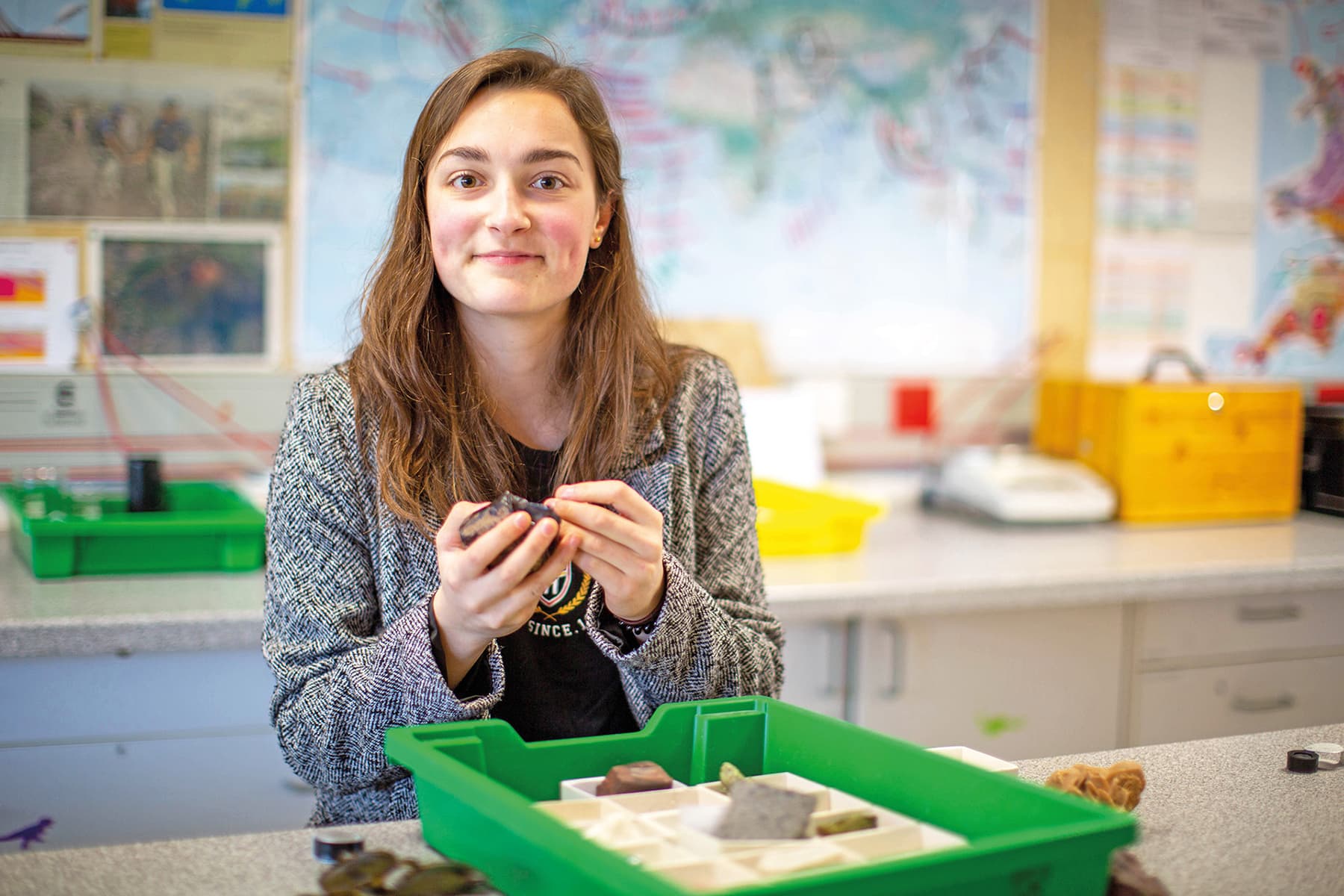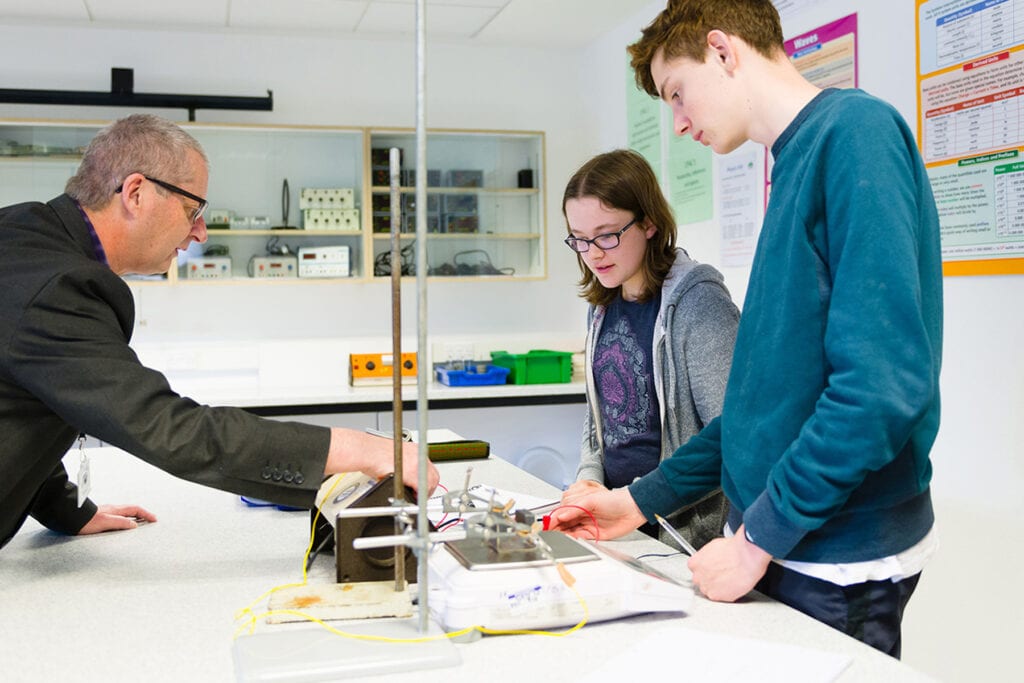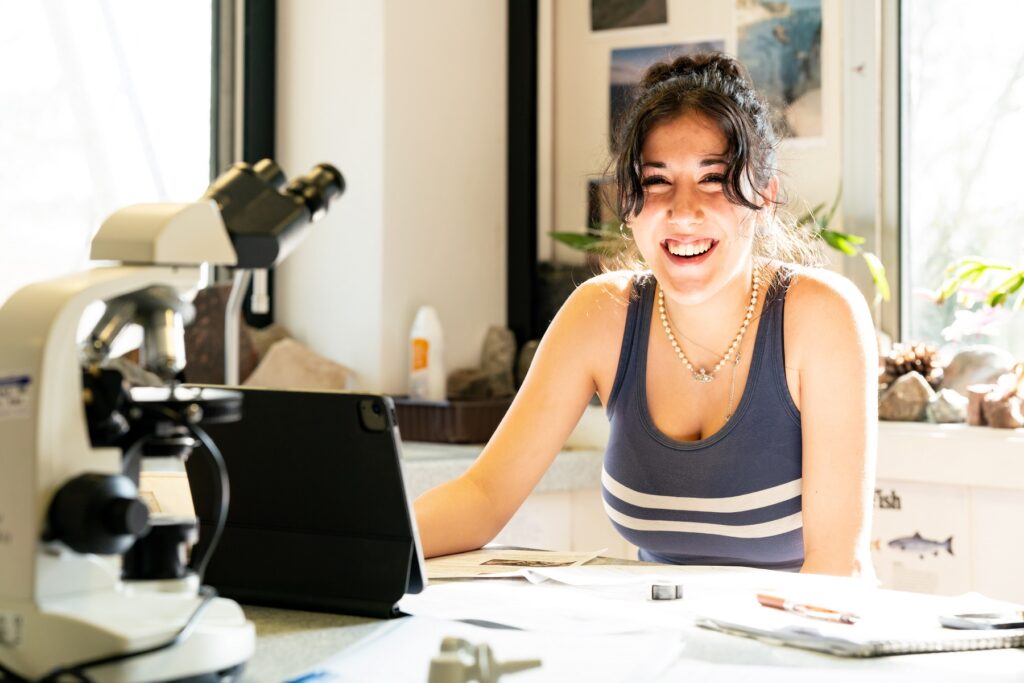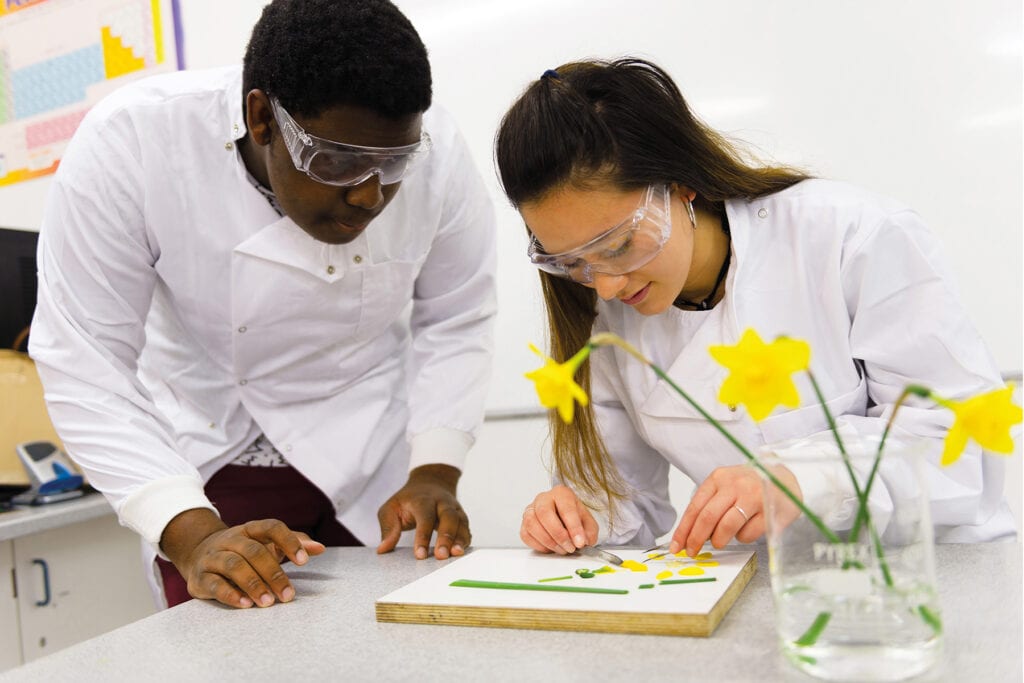New students starting in September: You can find more information about Induction days and submitting your GCSE results in our Start of Year Guide.
why choose this course?
Geology is the science of the Earth and involves the study of exciting topics including volcanoes, earthquakes, fossils, and minerals as well as important theoretical insights, for example plate tectonics. It is the foundation of everything we know about the Earth’s past which can lead us to understanding the processes that are currently affecting the planet and how we can protect it in the future. The skills and knowledge you acquire on this course will help you to understand that geology is the solution to many of the crises currently threatening planet Earth.
Do you wonder which forces drive volcanoes, earthquakes, and tsunamis? Are you fascinated by fossils and their evolutionary roots? Have you ever wondered where gold, diamonds and other natural resources come from? Are you concerned about the environmental consequences of the extraction of oil and gas or radioactive materials? Did you enjoy physical geography at school? If the answer to any of these questions are yes, then geology may be the subject for you.
Apply for this course
Start date: 08/09/2025
TOP COURSE HIGHLIGHTS
Passionate, dedicated staff
excellent specimen collection
lab and fieldwork exercises
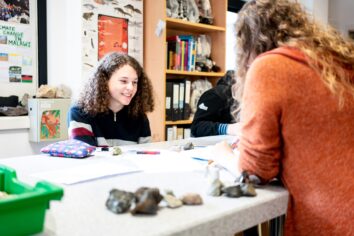
Practical, hands on
Geology is a very practical, hands on course. Our specimen collection is extensive and includes some exceptional fossils such as a dinosaur footprint and egg as well as examples of all of the minerals, rocks and fossils you will be expected to become familiar with.
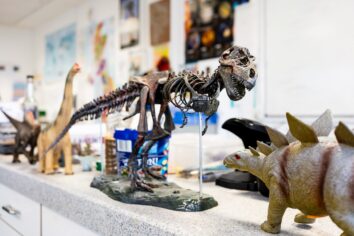
extensive field work
Our field work offer far exceeds the minimum expected by the exam board and includes a residential trip to the Jurassic Coast, which our students widely agree is one of the most exciting parts of their time with us, as it is where geology ‘becomes real’ and the experiences give opportunities to make lifelong friendships.
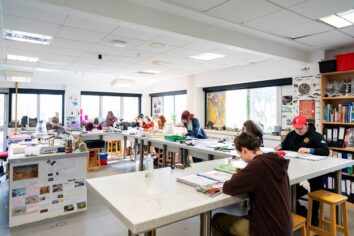
superb job opportunities
Geologists are right at the top of the Government’s UK Shortage Occupation List, and so job prospects and pay are excellent.
WHAT WILL I LEARN?
In your first year you will investigate the Earth from its meteorite origins through to the range of rocks found in its different layers and surface environments. You will study the immense forces that might circulate rocky material through the inside of the Earth and move the surface plates around, leaving huge cracks and folds behind as evidence of past activity. You will discover how geologists need a multitude of different skills to accurately measure and describe features in the environment. Through field trips in Cornwall and further afield in the UK, you will develop these skills for yourself.
By the time you reach your second year you will be able to apply your basic knowledge and skills to many geological situations. You will use geological maps and cross sections to investigate the difficulties of finding and extracting resources, from water and gas to oil and metals. You will study how and where to construct dams and reservoirs, analyse and debate the problems of constructing roads, tunnels and coastal defences, and consider the comparative benefits of different sources of power from coal to geothermal sources.
In your second year you will also study the evolution of life on Earth and how geologists can use this knowledge to re-construct a geological timescale stretching back billions of years. The evolution of life has constantly reacted to changes in the environment and climate so you will also study the causes and driving forces behind these changes and the evidence we have for them, locked away beneath your feet. All this information is written in the rocks and you will learn how to read them!
Students undertaking A Level Geology are expected to take part in the planned field trip programme to develop field skills and complete the practical exam as required by the EDUCAS examining board. There is a minimum requirement of four days in the field over the 2 year programme. The college will organise sufficient day trips around Cornwall to complete this requirement, all of which are fully subsidised. There is also a 4 day A Level Jurassic Coast trip in October which is student funded. Costs are kept to a minimum of approximately £350 by staying in a bunk house.
Other student funded geology trips are often organised on an annual basis, sometimes abroad. Additionally, in March, there is a trip to Iceland, run by the geography department, which is also open to geology students if space allows.
Year 1
Development of practical skills in geology including fieldwork
Elements, minerals and rocks
Surface and internal processes of the rock cycle
Time and change
Earth structure and global tectonics
Year 2
Development of practical skills in geology including fieldwork (assessed in the Practical Endorsement)
Fundamentals of geology
Interpreting the geological record
Quaternary geology (from the last ice age)
Earth materials and natural resources
where will it take me?
This course is designed to lead to Higher Education or into an Apprenticeship in any geoscience related course such as engineering, environmental science, palaeontology, oceanography, exploration, geophysics, geography, astrophysics, marine sciences, planetary sciences, or hazard management. With further training this could lead to many careers within a variety of fields.
Geologists are required in the oil industry, mining, materials science, hydrogeology (water resources), civil engineering, geotechnical engineering, public services, geohazard prediction and mitigation, scientific research (e.g. climate change, seismology) and education. Employment prospects are currently excellent, 26 out of 86 careers on the government’s UK Shortage Occupation List are geologists.
Geologists need a good grounding in science so if you are considering studying other sciences alongside this course, or a science to broaden a more humanities or arts-based course and would like to see different ways that these can be applied to the world around you (both in the laboratory and through fieldwork), then A Level Geology would be an excellent choice.
ASSESSMENT ARRANGEMENTS
There will be 3 written exams, covering all content covered over the 2 years – component 1 Geological investigations (35%), component 2 Geological principles and processes (30%) and component 3 Geological applications (35%) written paper.
Practical endorsement based on lab and field skills developed over the two years.
ENTRY REQUIREMENTS
Minimum of 5 GCSEs Grades 4 or above, including at least one Grade 6 in GCSE Chemistry, Physics or Biology or GCSE Combined Science Grades 66, GCSE English Grade 5 or a Humanities subject Grade 5, and GCSE Maths Grade 6.
INFORMATION + SUPPORT
You will be expected to undertake at least 4-6 hours of independent study time per week. Throughout the year you will be able to access additional support through drop-in sessions, dedicated revision workshops, tailored 1:1 provision, as well as a variety of additional opportunities to stretch and challenge the most able students. We encourage you to proactively engage with the support available in order to reach your full potential.
PLEASE NOTE – Students with physical disabilities are able to complete the course as there are plenty of accessible geological outcrops that can be incorporated into the field programme. Please contact the college for a detailed discussion of your needs to allow advance planning to be put in place.
ADDITIONAL COSTS
Students are required to provide themselves with a full set of waterproofs (coat and trousers) and a pair of walking boots, along with the cost of the Jurassic Coast field trip. However, help and advice can be given for this and cost should not be prohibitive for anyone.
Meet the staff, tour the campus and find out about life as a student at one of the best colleges in the country.
